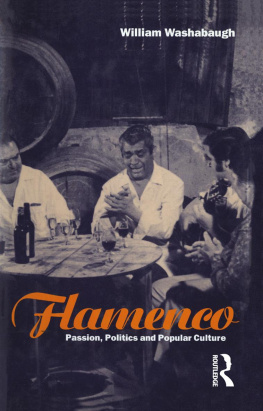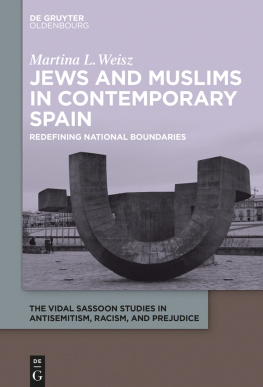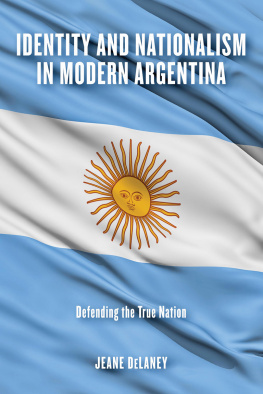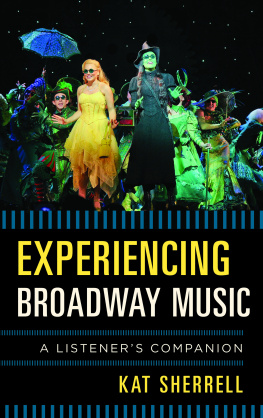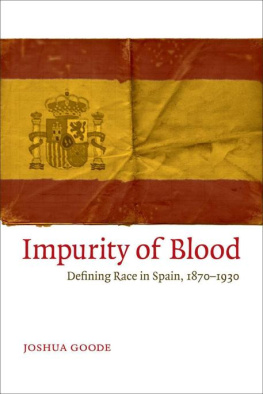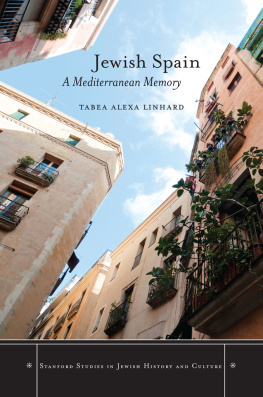Published by Louisiana State University Press
Copyright 2016 by Louisiana State University Press
All rights reserved
Manufactured in the United States of America
First printing
DESIGNER: Michelle A. Neustrom
TYPEFACE: Vulpa
PRINTER AND BINDER: Maple Press
LIBRARY OF CONGRESS
CATALOGING-IN-PUBLICATION DATA
Young, Clinton D.
Music theater and popular nationalism in Spain, 18801930 / Clinton D. Young.
pages cm
Includes bibliographical references and index.
ISBN 978-0-8071-6102-9 (cloth : alk. paper) ISBN 978-0-8071-6104-3 (pdf) ISBN 978-0-8071-6105-0 (epub) ISBN 978-0-8071-6106-7 (mobi) 1. Musical theaterSpainHistory20th century. 2. Musical theaterSpainHistory19th century. 3. ZarzuelaSpain20th century. 4. ZarzuelaSpain19th century. 5. Musical theaterPolitical aspectsSpainHistory20th century. 6. Musical theaterPolitical aspectsSpainHistory19th century. 7. Nationalism in music. I. Title.
ML1747.Y68 2016
782.10946'09034dc23
2015011998
The paper in this book meets the guidelines for permanence and durability of the Committee on Production Guidelines for Book Longevity of the Council on Library Resources.

ACKNOWLEDGMENTS
I f, as is generally acknowledged, the best part of writing is having written, then the best part of having written is having written the acknowledgments. Not only are they a symbol that ones work is almost complete, but they allow one to relive the best parts of a research projectthe conversations that lead to new insights, the serendipitous encounters that change the course of your work for the better, and the intellectual excitement that comes from sharing ideas with a receptive audience. Acknowledgments are a reminder that one is part of a community, and I am grateful that I have had the support of a large and supportive community while working on this project. While I alone am responsible for the flaws in this book, it is vastly better than it might otherwise have been due to the support of the people I thank below.
My first thanks must go to Pamela Radcliff, my principal academic advisor at the University of California, San Diego. She is that rarity among graduate advisors, one who is willing to allow her students latitude to work in areas outside of her own specialized interests. Thanks to her, I have been forced to communicate musical ideas to people who dont read musicand this project wouldnt exist otherwise. She has also been a colleague since graduation; I especially want to thank her for allowing me to read some of her as yet unpublished work while I was finalizing the manuscript, which helped me crystallize my own thinking on the debates surrounding the Restoration. David Ringrose served as my coadvisor, and I am in his debt for his unstinting support and unfailing good humor. Other UCSD faculty members who gave advice and significant support during my time there include Rachel Klein, David Luft, John Marino, Jann Pasler, Kathy Ringrose, Cynthia Truant, and Danny Vickers. One of the great advantages of UCSD was the welcoming and intellectually vibrant community of students working on Spanish history projects. Of these, Hamilton Stapell and Ana Varela-Lago deserve special mention: as we all started the same year, they have given input into this project for virtually its entire duration. Somehow they managed to avoid overt visceral reactions to the word zarzuela after hearing it so frequently for so long. Other Hispanists at UCSD to whom I am indebted include Daniel Berenberg, Enrique Sanabria, and Daniel Stuber. Thanks are also due to the non-Hispanist friends I made in California, including Heidi Keller-Lapp, Sara Malena, Rachel Shaw (who merits special thanks for indexing the book), Don Wallace, and Jackie Zucconi.
Ive had the great fortune to work with a number of smart and friendly colleagues since graduate school, all of whom have taught me a great deal about research and teaching. At Western Carolina University, these included Laura Cruz, David Dorondo, Mary Ella Engel, Gael Graham, Jim Lewis, Richard Starnes, and Vicki Szabo. While at the University of Arkansas at Monticello, Ive treasured my time working with Richard Clubb, Richard Corby, John Kyle Day, Marie Jenkins, Bill Shea, Carol Strong, and Donna Taylor. Ive also enjoyed working with students at both institutions: teaching them European history and research skills has strengthened my ability to communicate concepts more than theyll ever know. A special thanks goes to Dan Degges, whose interest in the Hispanic world went so far beyond that of most undergraduates that it has helped to inspire my next project. Ive met great colleagues at the annual meetings of the Association for Spanish and Portuguese Historical Studies, whose existence is one of the great benefits of studying Spanish history. It was at these meetings that I met Scott Eastman and Andrew McFarland, with whom I have spent many fruitful hours discussing the nature of Spanish nationalism. Thanks must also go to all the memberstoo numerous to list, but most of whom will be found in the bibliographywhose questions and conversations at the annual meetings have greatly helped and influenced my own thinking.
Then there are the institutions that have supported my research. Researchers are extraordinarily dependent upon librarians and archivists to help us locate the materials we need. My thanks go to the librarians at UCSD, WCU, and UAM, all of whom have managed to find the odd books I needed to finish this one. The same thanks go to the staff of the Biblioteca Nacional de Espaa (especially the staff of the Sala Barbieri), the staff of Archivo General de la Administracin, and the staff of the Biblioteca Espaola de Msica y Teatro of the Fundacin Juan March, who were extraordinarily helpful in digging out rare scores for me. The original research for this project between 2001 and 2003 was undertaken as part of a J. William Fulbright Foreign Scholarship. I must give special thanks to Patricia Zahniser, the American Program Officer of the Spanish Fulbright Commission, who aided me in the intricacies of living abroad; thanks are also due to Jos lvarez Junco, who supplied a critical letter of support for my application. The other end of the project has been supported by the staff of LSU Press, without whom this book would still be random digital files on a computer. Special gratitude goes to Alisa Plant, who kept asking about my work for several years and made the review process far easier than I anticipated. Thanks are also due to the reviewers of the draft manuscript, whose suggestions made this a better book.
Finally, this book could never have been written without the support of my family. They have encouraged me in my academic endeavors despite the fact it has meant my living thousands of miles awaysometimes on another continent. But my mother, Dyana, my father, David, and my sister, Leah, have never questioned what I have chosen to do (at least to my face) and instead have listened to my complaints, cheered my good fortune, and welcomed me home with open arms when Ive been able to return to Oregon. My grandmother, Lois Greig, has also taken a great interest in my stories of academia and travels to Spain, and I regret that my other grandparentsWallace Greig, Wayland Young, and Helen Youngare no longer here to see the fruits of their encouragement and understanding. Without the unconditional love of all my family, I dont think I could have found the strength to follow my chosen career path and do the work that I do. And for that, I will be forever in their debt.


